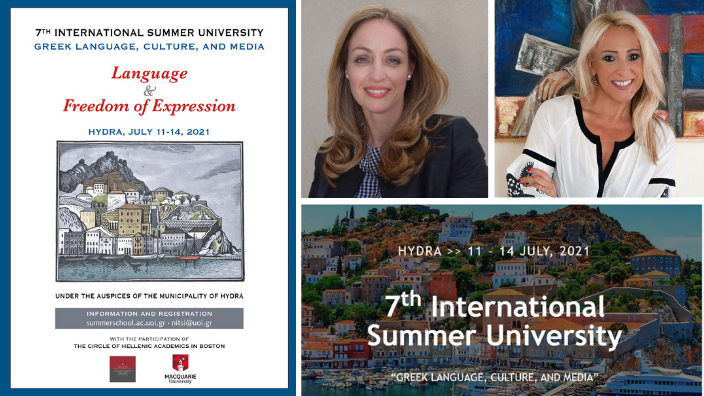What is the 7th International Summer University all about? What is the role of the Greek diaspora in the preservation of the Greek language and why do global collaborations among universities, organisations and academics of Greek background matter?
Nearly two months before the beginning of the annual conference, set to take place on the island of Hydra, in the flesh and on-line, from July 11 – July 14, we spoke with Program Coordinator Prof. Nikoletta Tsitsanoudis – Mallidis and Head of Macquarie Uni Modern Greek Studies Dr Patricia Koromvokis.
Tsitsanoudis: “Propagating the Greek language is what inspires me“
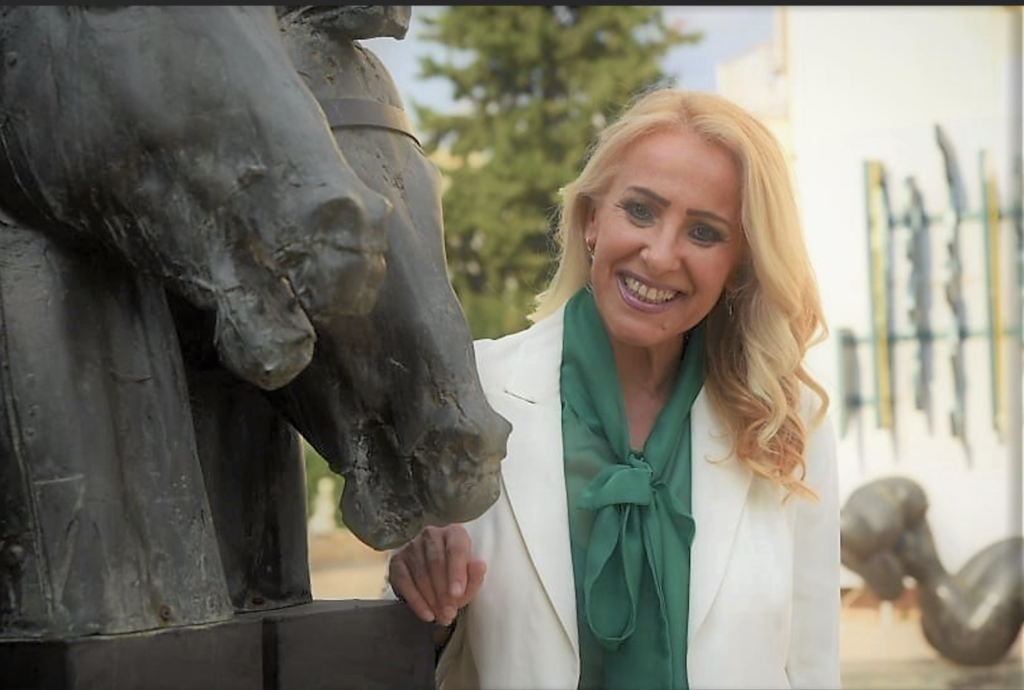
TGH: Professor, we are two months away from the seventh International University annual conference. What do we expect to see in July and who is this conference for? Does someone need to know Greek to participate?
In a tyrannical period, due to the pandemic, we decided to persist and keep the institution of the International Summer University alive this year, too. The idea that first took shape seven years ago and was born out of the fundamental “ingredients” of lifelong learning and continuing education should not be shaken by the regime of fear that seems to have been imposed by the health crisis and its menacing ripples.
Despite the fact that last year’s event at the Great School of the Nation was suspended again due to the pandemic, demolishing a preparation of more than ten months, despite the disappointment of not realizing a vision – because every year we serve a vision – we ended up planning the 7th program, transforming the harsh reality with a reversal of dream and creative mood.
What we expect to see in Hydra, will be an excellent gathering of prominent people from the academic community, the field of Arts and the media, who will share with our students their knowledge and experiences about language and freedom of expression.
Beyond the morning long courses and lectures, the program includes important cultural events, theater and concert activities and we thank the hundreds of people who collaborate for this project. Our thanks also goes the General Secretariat of Public Diplomacy and Greek Diaspora and the Macquarie Greek Studies Foundation Limited, that fully support our project.
As for the second part of your question, yes, knowledge of the Greek language is required, although some sessions will be offered in English.
TGH: This year’s conference is entitled ‘Greek Language, Culture and Mass Media’. What are you aiming to explore with this thematic?
The 7th International Summer University “Greek Language, Culture, and Media” this year has the specific title: “Language and freedom of expression”.
We will explore the language of the revolution, given that the program is incorporated in the anniversary program for the 200 years since the beginning of the Greek Revolution and it’s under the auspices of the Municipality of Hydra.
We will also discuss topics on the linguistic realization of the idea of freedom, the relation of the language and the emancipation, the freedom of expression in the public and the private sphere, but also the expression of the diversity in language. We are also interested in the notion of creativity as freedom of language, as well as the language in education, in a series of topical approaches, that are of interest to students in Australia, as well.
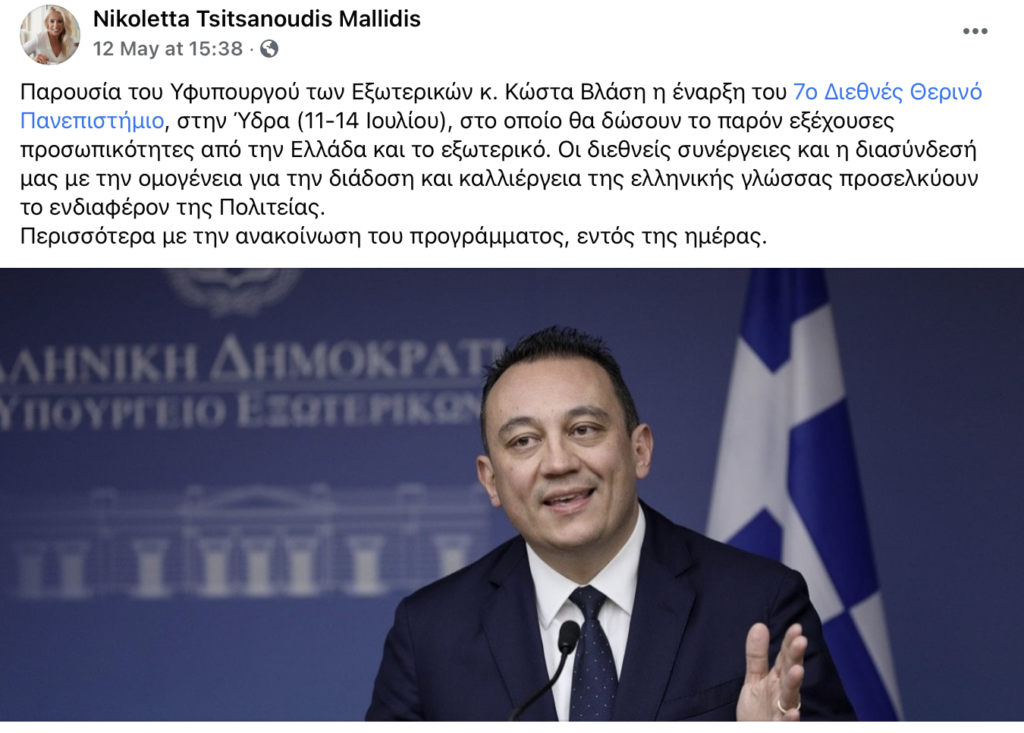
TGH: You are an advocate for the preservation and continuation of the Greek language in the diaspora. What motivates you?
What inspires me is the passion for the spreading of the Greek language in Greece and abroad.
After six years of renowned success in the organization, the “tradition” of cultivating extroversion and synergies with prominent international institutions of education, culture, and media continues.
Regarding the international aspect, in previous years, the International Summer University has been supported by the Center for Hellenic Studies in Greece, Harvard University; the Hellenic Delegation at the European Parliament; the European Federation of Journalists (Greek section); the French Department of the European Federation of Journalists (Club de la Presse Européenne, Paris); the Centre Culturel Hellénique of Paris; and the Instituto De Letras of Rio De Janeiro University. The program last year was under the auspices of His All-Holiness, Ecumenical Patriarch Bartholomew.
This year, we have the great pleasure of cooperating with the Department of Media, Communications, Creative Arts, Language and Literature, Faculty of Arts of Macquarie University in Sydney, Australia, as well as The Circle of Hellenic Academics in Boston. I am excited with the high level and quality of the collaboration with the exquisite fellow professors Patricia Koromvokis (Macquarie University) and Nicolas Prevelakis (Harvard University).
Through and behind all these partnerships are people who believed in our work and inspired us to continue. We are grateful to them all and each one of them individually.
Dr Patricia Koromvokis: ‘Creative bridges are of great importance‘
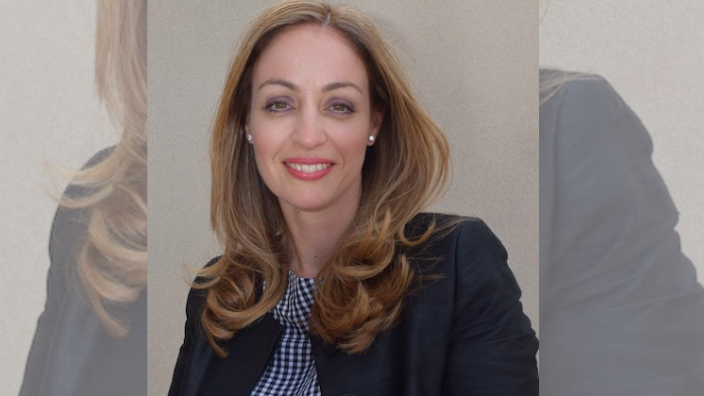
TGH: Dr Koromvokis, Macquarie University’s Modern Greek Studies Program is participating in this initiative. Why is it important for Australia’s Greek diaspora to keep these ‘creative bridges’ alive?
The pandemic crisis has led universities and organisations to a substantial uncertainty, being under big pressure, to rapidly expand their capabilities in the fields of digital learning, teaching and collaboration. I strongly believe that this situation also holds great opportunities.
One of these opportunities is the innovative collaboration with the University of Ioannina – Faculty of Education, Department of Early Childhood Education and the Laboratory for the Study of Social Issues, Mass Media and Education in organising the 7th International Summer University “Greek Language, Culture and Media”. It is indeed the first time that the Modern Greek Studies Program of Macquarie University participates in an initiative that accomplishes international virtual academic collaboration.
The virtual 7th International Summer University will bring together the knowledge and the experience of world’s leading academics, researchers, undergraduate and postgraduate students, foreign institutions, international universities, international media and international funding institutions enabling active intercultural encounters and practical exchange of experience; thereby it aims at developing fundamental skills which will assist the participants to prove themselves in an international level.
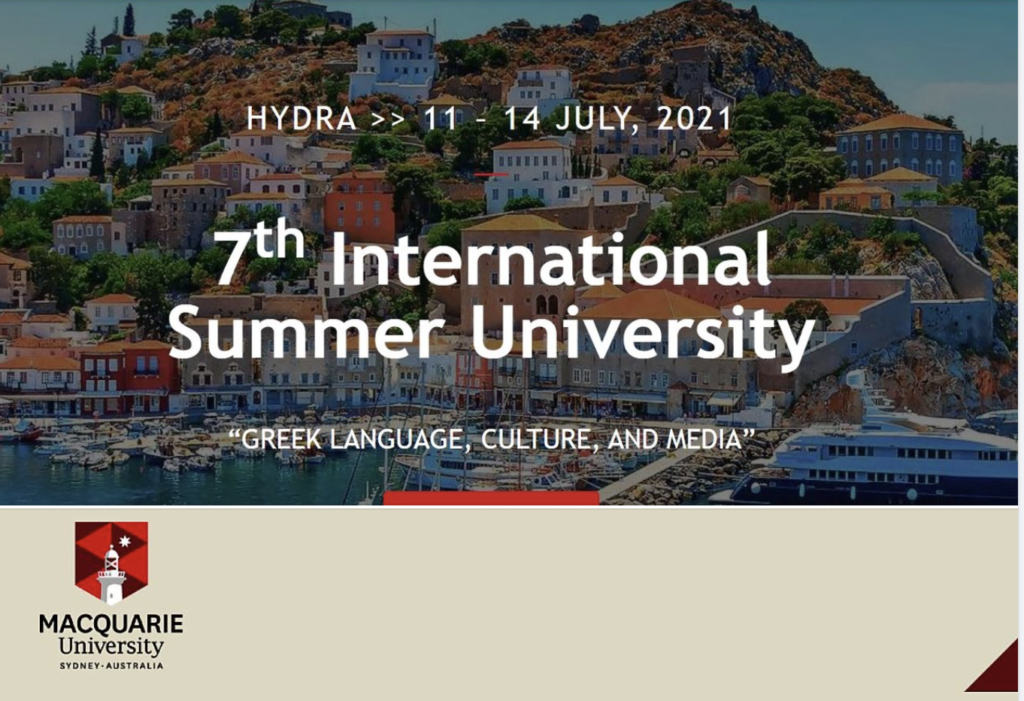
Building creative bridges between the dynamic Greek diaspora of Australia and Greece is of great importance, especially now that a multitude of opportunities of quick access to knowledge and research collaboration transcends any geographical distance and socioeconomic barriers.
‘Creative bridges’ between countries, communities, universities, undergraduate and postgraduate students, researchers underpin a dynamic academic collaboration, which strengthens intercultural communication and develops new perspectives in a digitally-based academic era and enhances essential team working skills.
TGH: Young Greeks in Australia and non-Greeks aspire to learn the language. Why should they?
Through my role as a Lecturer and Head of Modern Greek Studies Program at Macquarie University, I am often asked ‘Why to study Greek?’. My answer always is ‘Why not to study Greek?’.
Current and former students of Modern Greek Studies who participated in the very successful virtual event on the 7thFebruary 2021, ‘Pathway stories in career through Greek language’, gave answer to the question ‘Why to study Greek language at a tertiary level?’.
Apart from the typical arguments of studying Modern Greek – or any other language – that of identity, travelling, communication etc., they also presented their own experience in studying Modern Greek at Macquarie University and how the Greek language has resulted in a successful career with social impact and a critical way of thinking, emphasising the importance of language learning in careers and critical way of thinking in a globalised world.
Language gives a strong sense of identity or origin in the Australian multicultural environment. Greek language has been identified as the strongest marker of Greek identity and remains a key identity marker for Australian-born generations. Greek language is seen as cultural capital that defines group membership and contributes to preserving Greek cultural heritage and ethic identity in the diasporic environment of Australia.
TGH: Do we expect to see more collaborations like this one in the near future?
Of course! The 7th International Summer University is actually the beginning of an (new) era of international collaborations – virtual and non-virtual – that should be developed and institutionalised between universities and organisations. It has always been one of my core beliefs that only through cooperation we can start applying effective concepts that the students need and that will result in social impact in the future.
READ MORE: ‘Creative Bridges’: International Summer University kicks off with online presentation
*For expressions of interest and more information please contact Head of Mcquarie Uni Modern Greek Studies Program, Dr Patricia Koromvokis on patricia.koromvokis@mq.edu.au or Prof. Tsitsanoudis – Mallidis on nitsi@uoi.gr
- Seventh International Summer University is an initiative proudly supported by The Greek Herald

